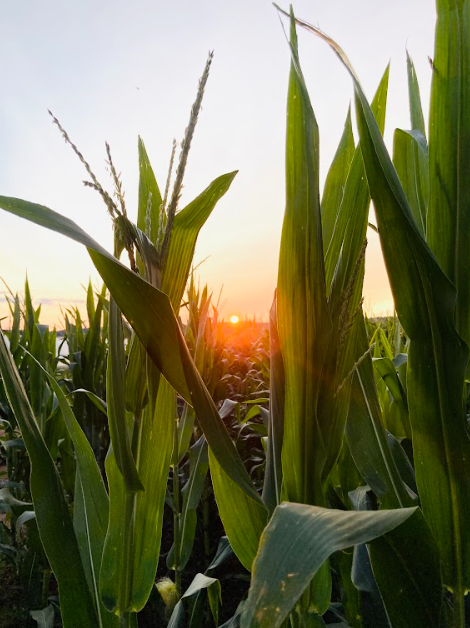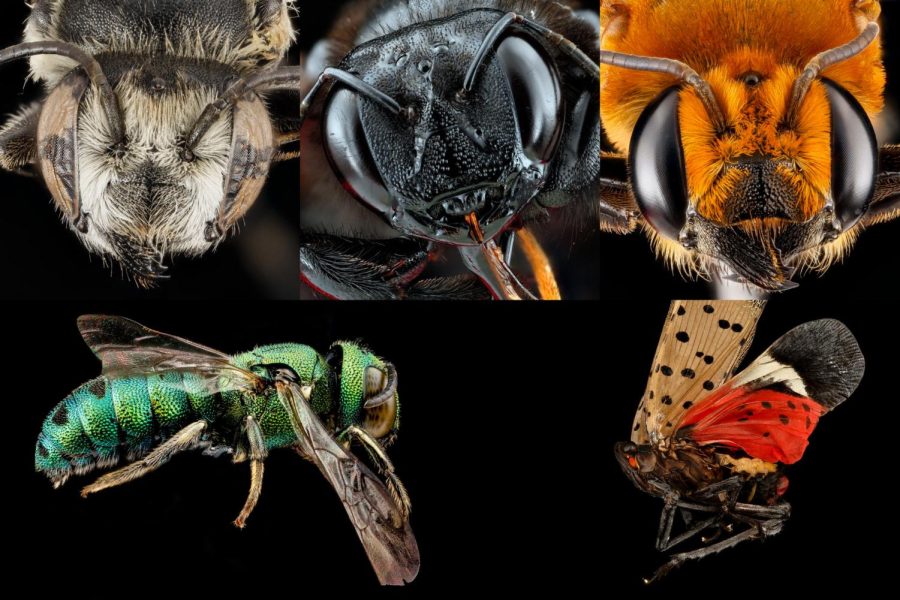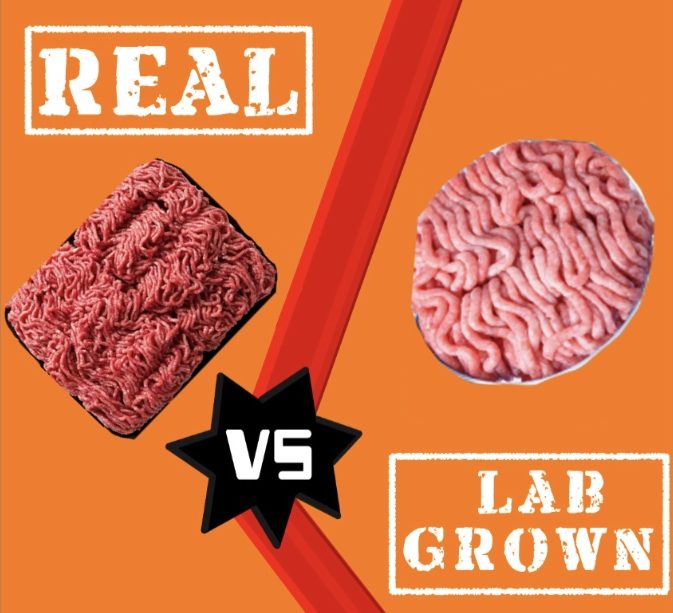As technology advances, so does the food industry and the way our food is made. With new foods and eating trends constantly developing, the food and agriculture industry has to keep up. Within the last year, The United States Food and Drug Administration approved Lab Grown meat for two companies: Good Meat and Upside Foods.
Lab grown meat or cultivated meat is grown in a lab, starting with animal stem cells. The Good Food Institutes process is to first collect stem cells from an animal. The cells are then grown in bioreactors where the cells are given an oxygen-rich cell culture medium. This is made up of amino acids, glucose, vitamins, inorganic salts, and supplemented with growth factors and other proteins. This is to imitate what happens in an animal’s body. As the medium changes the cells differentiate into the muscle, fat, and connective tissues that make up meat. Lastly, the cells are harvested, prepared, and packaged into the final product. The process can take from two to eight weeks.
Lab grown meat may be the only lab grown food product approved but it is not the only product being created. Many companies are working towards developing cell based products, such as eggs, dairy products, and other meat products.
Lab grown meat has not yet made its debut in grocery stores, although we may see it on the shelves in future years. In November of 2022, the United States Food and Drug Administration (FDA) approved Upside Foods lab grown meat product. Just months later in March of 2023, the FDA approved Good Meats product as well. In June of 2023, both companies received the label approval and grant of inspection from the United States Department of Agriculture (USDA) to sell chicken. The meat will only be sold at certain restaurants in San Francisco, California, and Washington, D.C.
Back in 2012, the first lab grown hamburger was created. It cost $325,000 to produce. Technology has advanced a lot since 2012; reducing the cost of producing lab grown meat. According to The Journal of Agriculture and Food Science, “cell-cultured meat produced in a large-scale plant can be produced at a cost $63/kg [$28.6/lb]”. At one of the restaurants selling lab grown chicken, called China Chilcano located in Washington, D.C., the meal is $70.
The nutritional value of lab grown meat is said to have similar nutritional components as conventional meat. In an interview with Verywell Health, Brooke Whitney, a Senior Communications Associate from Upside Foods, said, “[UPSIDE Foods Chicken] has fewer calories and lower fat than an average piece of conventionally-produced chicken.” Although does it still have high protein? Sentient Media claims it has the same nutritional components as conventional meat, including protein.
Currently, lab grown meat has no sign of replacing conventional meat. Although within the next few years, as technology advances and lab grown meat becomes more available, it may gain popularity. If this happens it could decrease the number of animals raised for conventional meat. Therefore, having an impact on the agriculture industry. Although, ranchers and farmers will always be needed to some degree to raise animals for stem cells and to produce the proteins/crops needed to develop stem cells. Lab grown meat does not have any possibility to replace conventional meat, at least for a very long time. So it may not have much effect on the agriculture industry for many years to come.
Many people think that lab grown meat will have less impact on the environment than conventional meat. Research shows the effect lab grown meat has on global warming could possibly be 80% lower to 26% higher than conventional meat. Even with the possibility that lab grown meat could reduce environmental emissions, there’s also a possibility it will make emissions worse. UC Davis suggests that, “investments to advance more climate-friendly beef production may yield greater reductions in emissions more quickly than investments in cultured meat.” So is it really more environmentally friendly than conventional meat?
Lab grown meat has many pros and cons, as well as possibilities. This could cause lab grown meat to rise in popularity or not. Some may be willing to give it a try, but others may not because it’s not conventional meat and its grown in a lab from cells and chemicals to imitate the natural processes. So will people create a demand for lab grown meat or stick to the traditional, conventional, real meat? The future of our food is in our hands.
Will the future of our food be fake?








































